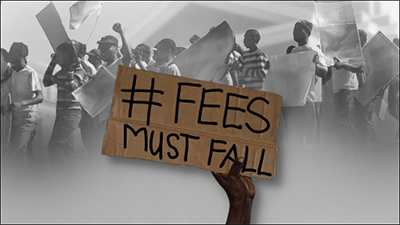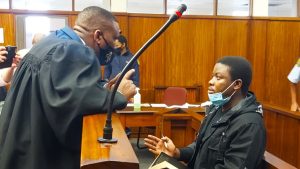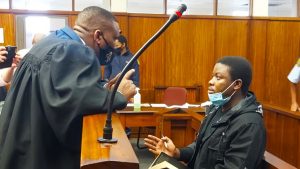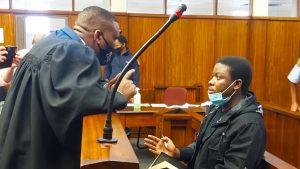The FeesMustFall campaign was the most important student protest since the Soweto Uprisings of 1976.
Thousands of university students across the country demanding one non-racial, a-political voice that the cost of higher education comes down to allow for greater access for all students.
It was the announcement that fees would be increasing by over 10% for the next year in October 2015 by Wits University’s management that sparked the protests.
Economic Freedom Front (EFF) MP Vuyani Pambo was then a student at the institution.
He explains: “We organised ourselves under a banner called FeesMustFall as those who resonated and resonate with the idea that university ought to be free university ought to be accessible to all and money should not be used as an instrument to include and exclude certain people.”
Wits Vice-Chancellor Adam Habib also remembers that explosive moment vividly.
“Most vice-chancellors including myself publicly said we accept that the cost of higher education is too high. The question is that the vast 90% of income from a university comes from a state subsidy or fees if state subsidy goes down fees have to go up. If state subsidy goes up fees can come down … that’s the logic. It’s simple logic and that is why so many of us were broadly supportive of the demands even if we took exception at the tactics of some factions of that movement,” adds Habib.
A few days later protests had spread to other universities across the country.
In December 2015, the students scored a decisive victory – increases in university tuition for 2016 were stayed. Government guaranteed free higher education for students with the national bursary scheme for poor and working-class students totaling over R12 billion in 2018 and expected to increase over the next few years. Not all students, however, were catered for as Pambo explains.
The video below was reporting on clashes between police and the students at Wits University:
“Students who fall within that mythical bracket of the missing middle are still struggling to enter university and even when they are able to pay that expensive registration fee they find themselves trapped in the system unable to pay anything further. What we did achieve and perhaps we did not achieve … in all universities is the in-sourcing of workers. Workers who were earning R1500 are now earning R8000 their children can now attend university like lecturers’ children.”
Another FeesMustFall activist Fasiha Hasan, now a member of the Gauteng Legislature Fasiha Hasan says, “NSFAS is no longer a loan, its a grant. Which means it is technically free but there are so many things in the system that are not yet fixed that are not providing enough support for students to succeed. That is most certainly around the implementation of free education. Around the accommodation crisis there are just not enough beds and they are very expensive.”
The campaign was not without its challenges as efforts by political parties including the ANC and EFF to muscle in on the students’ concerns caused the initially -united activist to fracture into factions.
Violence which caused millions of rands of damage to infrastructure also saw diminished public sympathy for the cause over time.
Professor Habib has warned that the “missing middle” problem – which affects over 50% of students on some campuses – in this time of COVID-19.
He adds that this may have a devastating impact on universities.
“If that is going to increase unemployment, it is going to make it very difficult for the fee-paying students to continue paying fees in the coming year. So, while Wits is okay for now, but if debt goes up like it has been going up for the last three or four years then we are heading for a major financial implosion in universities. But we are also hearing rumours about the state struggling to have money to meet its own obligations and if we are going to be cutting fees and subsidies we are going to be in serious trouble.”
In the video below, South Africa celebrates Youth Day on Tuesday





